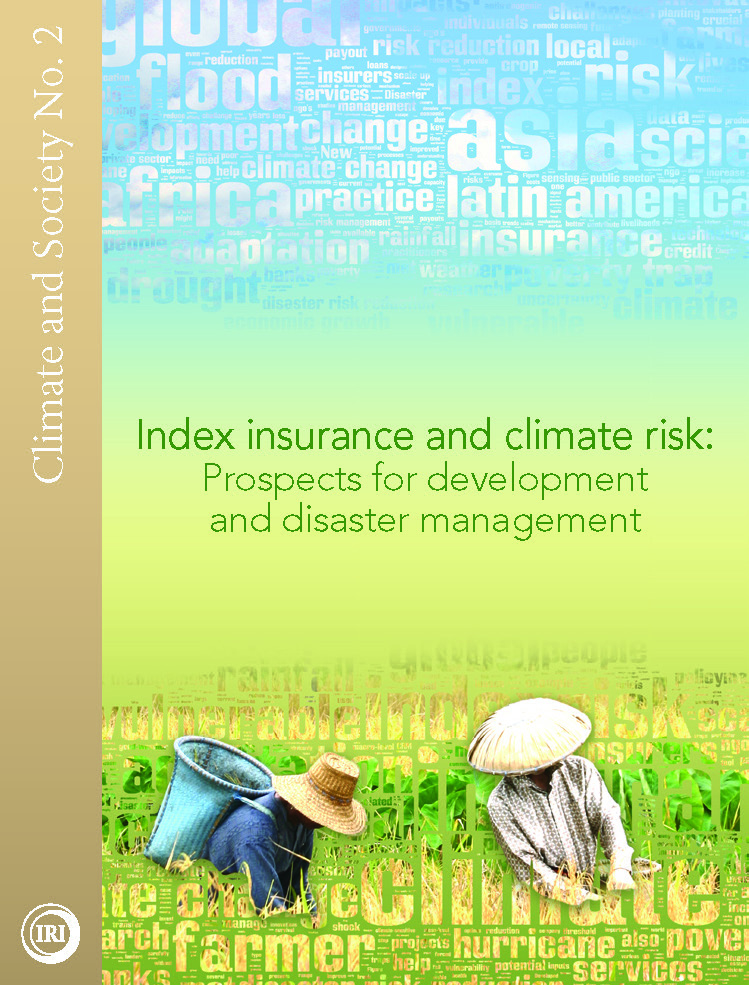Is index insurance an effective tool to manage climate-related disasters?
The climate has always presented a challenge to those whose livelihoods depend on it. For poor people, a variable climate presents a risk that can critically restrict options and so limit development. This document looks at the risk assessment tools such as index insurance that can be used to help vulnerable people deal with climate change.
Index insurance, which can be applied across a diverse range of weather-related risk problems,
from loss of crops due to drought, to loss of livestock, to losses resulting from hurricanes, offers new opportunities for managing climate risk in developing countries. If designed and introduced carefully, the authors emphasise, it has the potential to contribute significantly. However, this potential has some significant challenges that must first be addressed.
The introduction of index insurance also reflects a growing interest in, and a move towards, market-driven solutions to poverty-related problems. There would be a shift in responsibilities from public agencies, which ‘provide’ interventions to ‘beneficiaries’, to market-based mechanisms where people choose the services and technologies they prefer. Public–private partnerships and private-sector development are key to this approach.
Also issue discussed in this paper is the debate about whether index insurance can contribute to climate change adaptation strategies in developing countries. The authors argue that one way in which index insurance might help build adaptive capacity is by providing a mechanism to help people access the resources needed to escape climate-related poverty.
The publication highlights a range of case studies from Malawi to Mexico to the Caribbean, which captures the challenges they encountered and the lessons they have learned.
In conclusion, the authors note a number of lessons learnt and present recommendations to further improve the effectiveness of index insurance. These include:
low data quality and quantity restricts the implementation and scale-up of index insurance. It is important to improve data systems and explore new technologies to fill data gaps
index insurance works best when integrated into broader programs for development and disaster management. It should form part of a comprehensive risk management package with complementary resources targeted to other components of the package
investments in capacity building and marketing are needed to support the scaling up of index insurance
evaluations are needed to find out if there is a real impact on poverty, and to improve the products. Evaluation and impact studies should be built into future project design and implementation
insurance must be demand driven and locally owned. Risk and needs assessments should be carried out before designing and implementing a project
index insurance can help vulnerable populations better manage climate risk, and could be a useful strategy for climate change adaptation. Index insurance should be investigated as an adaptation strategy
governments should prioritise the development of a strong legal and regulatory system for index insurance.

